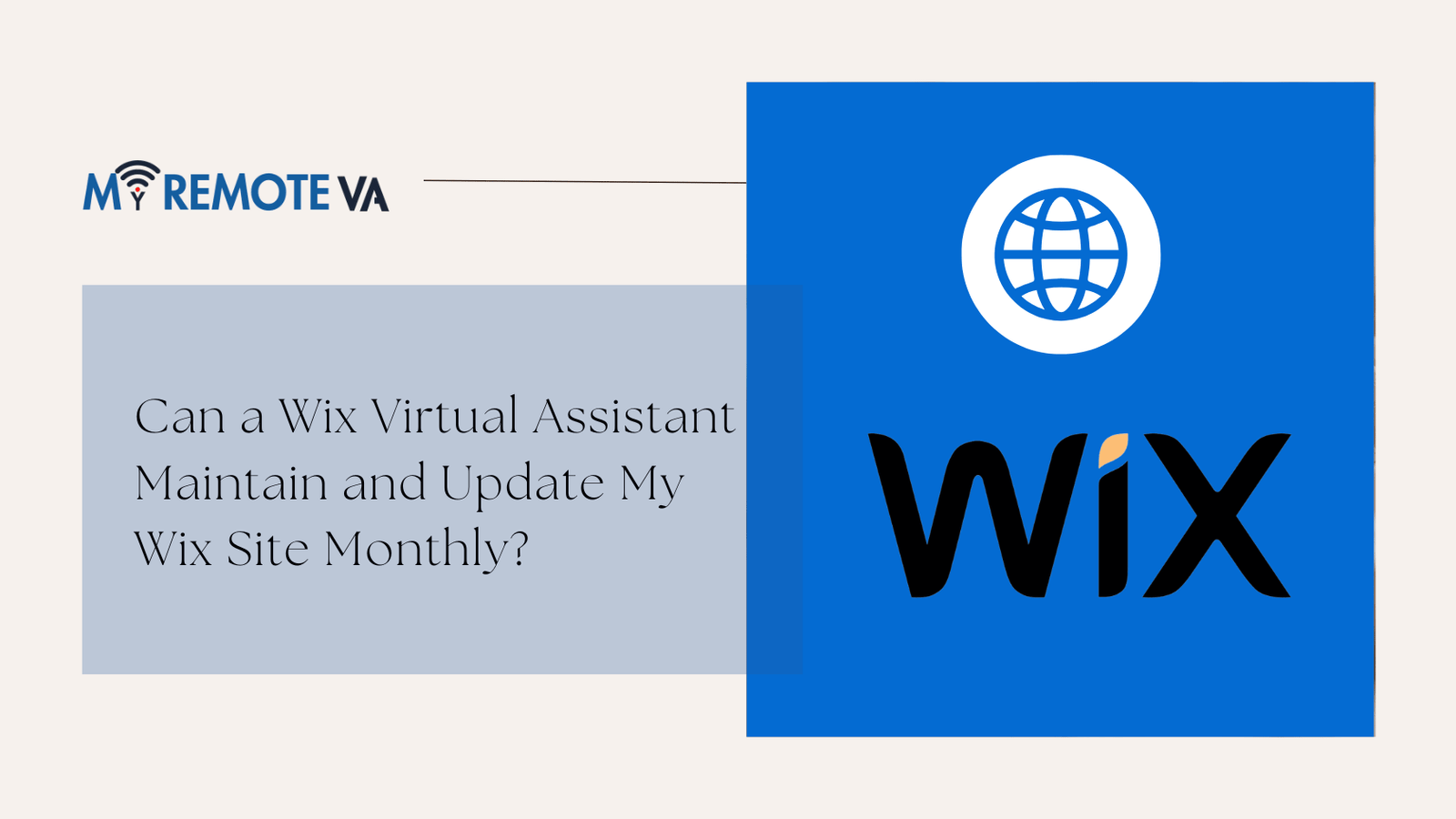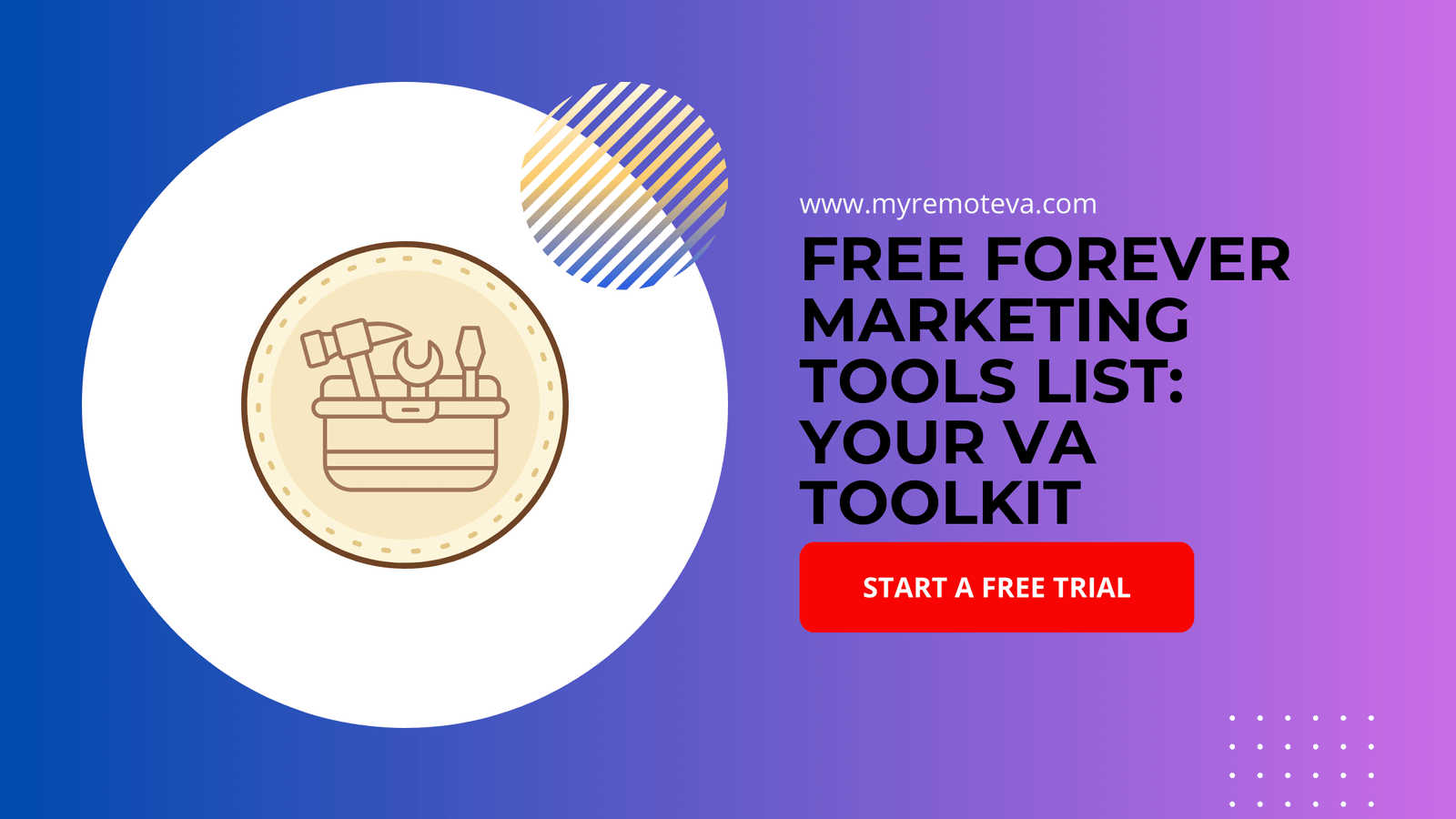How a Virtual Assistant Improves Your Website Engagement & Conversions
Want to see your website engagement soar and conversion rates climb? A virtual assistant (VA) can be a game-changer. They can handle a multitude of tasks that directly impact your website’s performance, freeing you up to focus on strategy and growth.
- How a Virtual Assistant Improves Your Website Engagement & Conversions
- Introduction: The Power of a VA for Your Website
- Understanding Website Engagement & Conversions
- Specific Ways a VA Can Boost Website Engagement
- How a VA Can Directly Impact Website Conversions
- Recent Market Signals & Trends (USA, UK, New Zealand, Singapore, Australia, UAE - Last Month)
- Case Studies: Real-World Examples of VA Success
- Choosing the Right VA for Your Website Needs
- FAQ: Virtual Assistants and Website Performance
- What Specific Tools Should a VA Be Proficient In to Improve Website Engagement?
- How can I measure the ROI of hiring a VA for website optimization?
- What is the Average Cost of Hiring a VA for Website Engagement and Conversions?
- What are the key qualities to look for in a VA for website support?
- How do I ensure effective communication and collaboration with a remote VA?
- What are the risks of hiring a VA that specializes in web design to also manage content?
- Conclusion: Investing in a VA for Website Success
Boosting Engagement with a VA
A VA can significantly improve your website engagement by:
- Refreshing Content: Stale content drives visitors away. A VA can regularly update blog posts, website copy, and other materials with fresh, relevant information, keeping users engaged and coming back for more.
- Optimizing Website Performance: Slow loading times and broken links kill engagement. A VA can monitor website speed, fix errors, and ensure a smooth user experience.
- Managing Social Media: Drive traffic to your website through strategic social media management. A VA can schedule posts, engage with followers, and run targeted advertising campaigns.
- Providing Excellent Customer Support: Quick and helpful responses to inquiries can significantly boost engagement. A VA can manage your website’s chat function, answer questions, and resolve customer issues promptly.
Driving Conversions with VA Support
Improved website engagement naturally leads to higher conversion rates. Here’s how a VA can help you turn visitors into customers:
- Improving Website Design & User Experience: A VA can help refine your website design based on user feedback and data analysis. This includes A/B testing different layouts and elements to optimize for conversions.
- Creating Compelling Landing Pages: Drive targeted traffic to conversion-focused landing pages. A VA can assist in designing, writing, and optimizing landing pages for specific campaigns.
- Managing Email Marketing Campaigns: Nurture leads and drive sales through targeted email marketing. A VA can manage your email list, create engaging newsletters, and automate email sequences.
- Analyzing Website Data: Track key metrics such as bounce rate, time on site, and conversion rates. A VA can analyze this data to identify areas for improvement and inform your website strategy.
Essentially, a VA acts as an extension of your team, providing crucial support across various areas to improve your website’s performance and drive tangible results. They can handle admin, tech, customer support, marketing, creative tasks, or even executive work to allow you to get more free time to improve conversions on your website.
Introduction: The Power of a VA for Your Website
In today’s competitive digital landscape, a compelling website is no longer enough. To thrive, you need to actively engage your audience and convert visitors into loyal customers. But managing a website effectively, constantly optimizing it for engagement and conversions, can be a significant time sink, pulling you away from core business activities.
This is where a virtual assistant (VA) can be a game-changer. Think of a VA as a dedicated extension of your team, focused on improving your website’s performance. By delegating crucial tasks to a skilled VA, you free up your time and resources to focus on strategic growth.
How a Virtual Assistant Can Boost Engagement and Conversions
A VA can assist with a wide range of tasks designed to enhance user engagement and drive conversions on your website. These can include:
- Content Updates and Optimization: Keeping your website fresh with relevant content is key. A VA can manage blog posts, update product descriptions, and optimize existing content for search engines.
- Website Maintenance and Troubleshooting: Ensuring your website runs smoothly is crucial for a positive user experience. A VA can handle routine maintenance, troubleshoot technical issues, and implement security updates.
- Social Media Management: Driving traffic to your website through social media requires consistent effort. A VA can create engaging content, schedule posts, and manage your social media presence.
- Email Marketing: Nurturing leads and driving sales through email marketing is highly effective. A VA can manage email campaigns, segment your audience, and track key metrics.
- Customer Support: Providing excellent customer support builds trust and encourages conversions. A VA can answer customer inquiries, resolve issues, and provide personalized assistance.
- Data Analysis and Reporting: Understanding your website’s performance is essential for continuous improvement. A VA can track key metrics, analyze data, and generate reports to identify areas for optimization.
By strategically delegating these tasks to a VA, you can significantly improve your website’s engagement, boost conversion rates, and ultimately, drive more business growth.
Many businesses are now leveraging virtual assistants through flexible plans tailored to their specific needs, with options ranging from hourly support to dedicated team setups. With curated Hourly Monthly Plans you can get (5, 10, 20, 30 hours). There are also Dedicated Plans, for 80 hours, or for 160 hours, or multi-VA setups. And you may be able to test the service with a Forever Free Plan, which gives you 1 free hour every month.
Understanding Website Engagement & Conversions
Before diving into how a virtual assistant can boost your website’s performance, it’s crucial to understand the fundamentals of website engagement and conversions. Website engagement refers to how visitors interact with your site – the time they spend browsing, the pages they visit, and the actions they take. Conversions, on the other hand, are specific actions you want visitors to take, such as filling out a form, making a purchase, or subscribing to a newsletter.
Why Are Engagement and Conversions Important?
High website engagement signals that your content is relevant and valuable to your audience. Increased engagement often leads to higher conversions, as engaged visitors are more likely to trust your brand and take the desired actions. Low engagement can indicate issues with your website’s design, content, or user experience.
Improving these metrics directly impacts your business goals, whether it’s generating leads, driving sales, or building brand awareness. A website that fails to engage visitors and convert them into customers is essentially failing to reach its full potential.
Key Metrics to Track
To effectively improve your website, you need to track key performance indicators (KPIs). Here are a few important metrics to monitor:
- Bounce Rate: The percentage of visitors who leave your site after viewing only one page. A high bounce rate suggests that your content isn’t relevant to the visitor’s search query or that your website’s design is unappealing.
- Time on Page: The average amount of time visitors spend on a specific page. Longer time on page indicates that visitors are finding the content engaging.
- Pages per Session: The average number of pages a visitor views during a single session. A higher number suggests that visitors are exploring your website and finding valuable information.
- Conversion Rate: The percentage of visitors who complete a desired action (e.g., filling out a form, making a purchase).
By understanding these core concepts and metrics, you’ll be better equipped to leverage the support of a virtual assistant to improve your website’s engagement and conversion rates.
Specific Ways a VA Can Boost Website Engagement
A virtual assistant (VA) can be a powerful asset in improving your website’s engagement and conversion rates. By strategically delegating tasks, you can free up your time to focus on higher-level strategy while your VA works on the day-to-day activities that drive user interaction and sales. Here are some specific ways a VA can contribute:
Content Optimization and Updates
Fresh, relevant content is crucial for attracting and retaining visitors. A VA can assist with:
- Updating existing content: Regularly reviewing and updating older blog posts, articles, and website copy to ensure accuracy and relevance. This keeps content evergreen and improves search engine rankings, leading to more organic traffic and potentially higher engagement .
- Creating engaging content formats: Repurposing existing content into more visually appealing formats like infographics, short videos, or interactive quizzes. These formats are more likely to capture attention and encourage sharing.
- Optimizing content for SEO: Implementing keyword research, meta descriptions, and alt text to improve search engine visibility and attract a targeted audience.
Website Maintenance and Performance
A well-maintained website provides a seamless user experience, encouraging visitors to stay longer and explore more. A VA can help with:
- Website speed optimization: Identifying and resolving issues that slow down page load times. Faster loading speeds significantly improve user experience and reduce bounce rates .
- Regular website backups: Ensuring that website data is backed up regularly to prevent data loss in case of technical issues.
- Monitoring website security: Keeping the website secure from cyber threats by installing security updates and monitoring for suspicious activity.
- Fixing broken links and errors: Regularly scanning the website for broken links and errors and resolving them promptly to ensure a smooth browsing experience.
Customer Interaction and Support
Providing excellent customer support and actively engaging with visitors can significantly boost conversions. A VA can handle:
- Responding to customer inquiries: Promptly answering customer questions via email, live chat, or social media.
- Managing online communities: Moderating comments, responding to feedback, and fostering a positive online community around your brand.
- Gathering customer feedback: Conducting surveys and analyzing customer feedback to identify areas for improvement.
Social Media Management
Driving traffic from social media to your website is key. A VA can help with:
- Creating and scheduling social media posts: Developing engaging social media content and scheduling it for optimal reach and engagement.
- Running social media contests and campaigns: Designing and executing social media contests and campaigns to drive traffic and generate leads.
- Monitoring social media mentions: Tracking social media mentions of your brand and responding appropriately to comments and feedback.
By delegating these tasks to a VA, you can create a more engaging and user-friendly website that attracts more visitors and ultimately increases conversions. A well-supported website leads to a better customer experience and ultimately higher returns.
How a VA Can Directly Impact Website Conversions
A virtual assistant (VA) can be a powerful asset in boosting your website engagement and, ultimately, increasing conversions. By strategically delegating tasks to a VA, you can free up your time to focus on core business strategies while ensuring your website operates at peak performance. Here’s how a VA can directly improve your conversion rates:
Enhanced User Experience
A positive user experience (UX) is crucial for converting visitors into customers. VAs can contribute by:
- Website Maintenance: Regularly updating content, fixing broken links, and ensuring mobile responsiveness. A well-maintained site keeps visitors engaged and reduces bounce rates.
- Website Speed Optimization: Page load speed is a critical factor for both user experience and search engine ranking. VAs can optimize images, minify code, and implement caching strategies to improve loading times.
- Navigation Improvement: Ensuring clear and intuitive navigation helps visitors find what they’re looking for quickly and easily. VAs can analyze user behavior and suggest improvements to your website’s structure.
Content Optimization and Creation
Engaging and relevant content is essential for attracting and retaining visitors. VAs can assist with:
- Content Creation: Writing blog posts, articles, and website copy that resonates with your target audience. High-quality content drives traffic and establishes your expertise.
- Content Editing and Proofreading: Ensuring all website content is error-free and grammatically correct. This builds trust and credibility.
- Keyword Research and SEO: Identifying relevant keywords and optimizing website content for search engines. This improves organic visibility and attracts qualified leads.
Lead Generation and Nurturing
Converting website visitors into leads is a crucial step in the sales process. VAs can help by:
- Setting Up Lead Capture Forms: Creating and managing forms for collecting contact information. This allows you to build an email list and nurture potential customers.
- Managing Email Marketing Campaigns: Sending targeted emails to nurture leads and promote your products or services. Consistent communication keeps your brand top of mind.
- Analyzing Website Analytics: Tracking key metrics such as website traffic, bounce rate, and conversion rates. This provides valuable insights into what’s working and what needs improvement.
Customer Support
Providing excellent customer support on your website can significantly impact conversion rates. VAs can:
- Live Chat Support: Answering customer questions and providing assistance in real-time. This can resolve issues quickly and prevent potential customers from abandoning their purchase.
- Managing FAQs and Knowledge Base: Creating and maintaining a comprehensive resource of answers to common customer questions. This empowers customers to find solutions independently and reduces the workload on your team.
- Responding to Customer Inquiries: Promptly and professionally addressing customer inquiries via email or contact forms. This demonstrates your commitment to customer satisfaction and builds trust.
By leveraging the skills of a VA to improve your website’s UX, content, lead generation efforts, and customer support, you can create a more engaging and conversion-focused online presence. With curated Hourly Monthly Plans or build a team with Dedicated Plans, for 80 hours, or for 160 hours, or multi-VA setups. You can delegate admin, tech, customer support, marketing, creative tasks, or executive work — and a Dedicated Supervisor manages your VA, shift, processes, and reporting so you don’t have to.
Recent Market Signals & Trends (USA, UK, New Zealand, Singapore, Australia, UAE – Last Month)
Website engagement and conversion optimization are increasingly top priorities for businesses across the USA, UK, New Zealand, Singapore, Australia, and the UAE. Recent trends indicate a growing reliance on virtual assistants to achieve these goals. Here’s a snapshot of what’s happening:
Increased Demand for Website Optimization
Businesses are recognizing that a well-optimized website is crucial for attracting and retaining customers. This has led to a surge in demand for services that improve website performance, user experience, and overall conversion rates. Many are turning to virtual assistants to manage these tasks efficiently and cost-effectively.
Focus on Personalized User Experiences
Generic websites are no longer sufficient. Customers expect personalized experiences tailored to their needs and preferences. Virtual assistants are being employed to gather user data, analyze behavior, and implement strategies for personalized content delivery, targeted marketing campaigns, and customized website layouts.
Content Marketing Remains King
High-quality, engaging content continues to be a driving force for website traffic and conversions. Businesses are leveraging virtual assistants to create blog posts, articles, website copy, social media content, and other materials that attract and inform potential customers. Content is king and consistency is queen for improving SEO which improves ranking and visibility.
Emphasis on Data-Driven Decision Making
Successful website optimization requires careful tracking and analysis of key performance indicators (KPIs). Virtual assistants are playing a crucial role in monitoring website traffic, bounce rates, conversion rates, and other metrics. This data is then used to identify areas for improvement and make informed decisions about website design and content strategy.
Chatbots and Live Chat Support
Instant customer support is now an expectation. Many businesses are implementing chatbots and live chat features on their websites to provide immediate assistance to visitors. Virtual assistants can be trained to manage these channels, answer frequently asked questions, and resolve customer issues in real-time. This leads to increased customer satisfaction and higher conversion rates. It allows your team to handle more complex scenarios and offload a ton of support work.
Mobile-First Optimization
With the majority of website traffic now coming from mobile devices, businesses are prioritizing mobile-first optimization. Virtual assistants are assisting in ensuring websites are responsive, fast-loading, and user-friendly on all devices. This includes optimizing images, simplifying navigation, and streamlining the mobile checkout process.
These trends highlight the growing importance of virtual assistants in helping businesses improve website engagement and conversions. By delegating website optimization tasks to skilled virtual assistants, businesses can free up their internal resources to focus on core activities and strategic initiatives.
Case Studies: Real-World Examples of VA Success
Want to see how a virtual assistant can truly boost your website’s performance? These case studies highlight how businesses like yours have leveraged virtual assistants to improve engagement and conversions.
Case Study 1: Increased Website Engagement through Content Optimization
A small e-commerce business specializing in handmade jewelry struggled to keep their website content fresh and engaging. Bounce rates were high, and time on site was low. They hired a virtual assistant to focus on content optimization, including:
- Keyword research: Identifying high-potential keywords to attract a relevant audience.
- Blog post creation: Developing informative and engaging blog posts related to jewelry care, styling tips, and gemstone information.
- Meta description optimization: Crafting compelling meta descriptions to improve click-through rates from search engine results pages.
Results: Within three months, the business saw a 40% increase in website traffic, a 25% reduction in bounce rate, and a 15% increase in average time on site. This increased engagement ultimately led to a 10% boost in conversions.
Case Study 2: Improved Conversion Rates through Enhanced Customer Support
A SaaS company experienced a high cart abandonment rate and a significant number of pre-sales inquiries. They needed a way to provide faster and more efficient customer support without hiring a full-time team. They delegated the following to a virtual assistant:
- Live chat support: Answering customer questions in real-time, resolving issues, and guiding users through the sales process.
- Email support: Responding to email inquiries promptly and professionally.
- FAQ page optimization: Creating a comprehensive and user-friendly FAQ page to address common customer concerns.
Results: The SaaS company witnessed a 20% decrease in cart abandonment rate and a 15% increase in conversion rates. The improved customer support provided by the virtual assistant instilled confidence in potential customers and encouraged them to complete their purchases.
Case Study 3: Streamlined Website Maintenance & Increased Lead Generation
A marketing agency found themselves spending too much time on routine website maintenance tasks, taking away from client-facing work. They employed a virtual assistant for:
- Website updates: Regularly updating website content, plugins, and themes.
- Technical SEO audits: Identifying and fixing technical SEO issues that could be hindering website performance.
- Lead magnet creation and implementation: Developing and promoting lead magnets (e.g., ebooks, checklists) to capture leads on the website.
Results: The marketing agency freed up 10 hours per week for their core business activities. They also saw a 30% increase in lead generation from their website, thanks to the improved technical SEO and effective lead magnet implementation.
These are just a few examples of how a virtual assistant can significantly impact your website’s engagement and conversion rates. By delegating tasks related to content optimization, customer support, and website maintenance, you can free up your time to focus on growing your business.
Choosing the Right VA for Your Website Needs
To truly leverage a virtual assistant (VA) for improved website engagement and conversions, selecting the right VA is paramount. Not all VAs are created equal, and aligning their skills with your specific website goals is crucial for success.
Skills and Expertise
Consider the specific tasks you want the VA to handle. Do you need help with:
- Content Updates: Maintaining fresh, engaging content is key. Can the VA handle writing, editing, and formatting website content?
- SEO Optimization: Can they conduct keyword research, optimize meta descriptions, and improve your website’s search engine ranking? These activities impact your website engagement and conversions..
- Website Maintenance: Do they have experience with your website platform (e.g., WordPress, Shopify) to manage updates, fix broken links, and ensure optimal performance?
- Customer Support: Are they capable of handling customer inquiries through live chat or email, providing timely and helpful responses?
- A/B Testing: Can they assist with setting up and analyzing A/B tests to optimize landing pages and improve conversion rates?
- Analytics Tracking: Can the VA monitor your website analytics, identify areas for improvement, and provide data-driven recommendations?
Experience and Industry Knowledge
Look for a VA with relevant experience in website management, digital marketing, or your specific industry. Someone familiar with your target audience and industry trends can provide more valuable insights and strategies.
Communication and Collaboration
Effective communication is essential. Ensure the VA is responsive, clear in their communication, and able to collaborate effectively with your team. Look for someone who proactively seeks clarification and provides regular updates on their progress.
Flexible Plans
Think about the time commitment you require. Some services provide curated hourly plans to address your needs, for example, (5, 10, 20, 30 hours) monthly. You can also find flexible plans that offer team access for 80 hours, or 160 hours, or multi-VA setups.
FAQ: Virtual Assistants and Website Performance
Wondering how a virtual assistant can boost your website’s engagement and conversions? Here are some frequently asked questions:
How can a virtual assistant improve my website engagement?
A virtual assistant can contribute to increased website engagement in several ways. They can:
- Manage and Moderate Website Comments: Keeping comment sections active and responding to user queries can foster a sense of community and encourage more engagement.
- Update Website Content Regularly: Fresh, relevant content keeps visitors coming back for more. VAs can handle blog posts, news articles, and other content updates.
- Optimize Website Content for SEO: Implementing SEO best practices (keyword research, meta descriptions, alt text) ensures your content reaches a wider audience.
- Manage Social Media Promotion: Driving traffic to your website through engaging social media posts and campaigns.
- Perform Website A/B Testing: Testing different website elements (headlines, calls to action) to see what resonates best with your audience and improve user experience.
- Manage Online Communities: Actively participate in online forums and communities related to your niche to drive targeted traffic to your website.
How can a virtual assistant improve my website conversions?
Converting website visitors into customers is crucial. A virtual assistant can help by:
- Optimizing Landing Pages: VAs can create and optimize landing pages focused on specific offers or products to improve conversion rates.
- Implementing Chat Support: Providing real-time assistance to website visitors can answer their questions and guide them through the sales process.
- Managing Email Marketing Campaigns: Nurturing leads and driving sales through targeted email marketing.
- Improving Website User Experience (UX): Identifying and addressing website usability issues to ensure a smooth and intuitive user experience.
- Creating Compelling Call-to-Actions (CTAs): Designing and implementing effective CTAs that encourage visitors to take the desired action (e.g., sign up for a newsletter, request a demo, make a purchase).
- Performing Data Analysis: Tracking key website metrics and identifying areas for improvement in conversion rates.
What type of tasks related to website performance can I delegate to a virtual assistant?
You can delegate a wide range of tasks to a virtual assistant. This includes:
- Content creation and editing.
- SEO optimization.
- Social media management.
- Email marketing.
- Customer support (e.g., chat, email).
- Website maintenance (e.g., updates, backups).
- Data analysis and reporting.
What if I need a dedicated virtual assistant for website tasks?
For consistent and dedicated support, look for services that offer dedicated virtual assistant plans. These plans often provide a set number of hours per month and a dedicated VA who is familiar with your website and business needs. Some services also include a supervisor who manages the VA, shift, processes, and reporting, freeing you from direct management.
How can flexible hourly plans benefit website engagement and conversions?
Flexible hourly plans are ideal for businesses that need varying levels of support. You can utilize the VA for tasks related to website updates, content creation, or social media promotion one week, and then focus on email marketing or data analysis the next. This allows you to adapt your VA’s tasks to your changing needs and priorities, ultimately maximizing your website’s performance.
What Specific Tools Should a VA Be Proficient In to Improve Website Engagement?
To effectively improve your website engagement and conversions, a virtual assistant (VA) should possess a solid understanding and proficiency in a variety of tools. These tools fall into several categories, each contributing to a different aspect of website optimization.
Analytics and Data Interpretation
A VA needs to be adept at using analytics platforms like Google Analytics to track website traffic, bounce rates, time on page, and conversion rates. Understanding these metrics is crucial for identifying areas for improvement. They should be able to generate reports, analyze data, and provide actionable insights based on their findings.
Content Management Systems (CMS)
Proficiency in at least one popular CMS like WordPress, Drupal, or Joomla is essential. A VA should be able to manage content, update website pages, optimize content for search engines (SEO), and implement design changes as needed. This includes tasks like uploading images, formatting text, and managing plugins.
SEO Tools
Understanding and using SEO tools is key for improving website visibility and attracting more organic traffic. This includes tools for keyword research (e.g., Google Keyword Planner, Ahrefs, SEMrush), on-page optimization (e.g., Yoast SEO, Rank Math), and backlink analysis. A VA should be able to conduct keyword research, optimize website content for relevant keywords, and monitor search engine rankings.
Social Media Management Tools
Social media plays a vital role in driving traffic to your website and engaging with your audience. A VA should be familiar with social media management platforms like Hootsuite, Buffer, or Sprout Social. They should be able to schedule posts, monitor social media channels, engage with followers, and analyze social media performance to identify opportunities for improvement.
Email Marketing Platforms
Email marketing remains a powerful tool for nurturing leads and driving conversions. A VA should be proficient in using email marketing platforms like Mailchimp, ConvertKit, or ActiveCampaign. They should be able to create email campaigns, manage subscriber lists, segment audiences, and track email performance metrics such as open rates, click-through rates, and conversion rates.
A/B Testing Tools
A/B testing is crucial for optimizing website elements to improve conversions. A VA should be familiar with A/B testing tools like Google Optimize, Optimizely, or VWO. They should be able to set up A/B tests, analyze results, and implement changes based on the data.
Customer Relationship Management (CRM) Systems
If your website includes lead generation forms or e-commerce functionalities, a VA might benefit from being familiar with CRM systems like Salesforce, HubSpot, or Zoho CRM. They can help manage leads, track customer interactions, and automate marketing tasks.
How can I measure the ROI of hiring a VA for website optimization?
Determining the return on investment (ROI) of hiring a virtual assistant (VA) for website optimization involves tracking key performance indicators (KPIs) before and after their involvement. By comparing these metrics, you can quantify the impact of their work and assess the value they bring.
Key Metrics to Track
- Website Traffic: Monitor overall website traffic, focusing on organic traffic, referral traffic, and direct traffic. An increase in traffic suggests improved search engine optimization and content marketing efforts.
- Engagement Metrics: Analyze metrics like bounce rate, time on page, pages per session, and scroll depth. Lower bounce rates and increased time on page indicate more engaging content and a better user experience.
- Conversion Rates: Track conversion rates for specific goals, such as form submissions, newsletter sign-ups, or product purchases. An increase in conversion rates signifies that your website is more effective at guiding visitors to take desired actions.
- Search Engine Rankings: Monitor keyword rankings in search engine results pages (SERPs). Improved rankings lead to increased organic traffic and visibility.
- Website Loading Speed: Measure website loading speed using tools like Google PageSpeed Insights. Faster loading speeds improve user experience and search engine rankings.
- Cost Savings: Calculate the cost savings achieved by outsourcing website optimization tasks to a VA compared to hiring a full-time employee or using an agency. Consider salary, benefits, and overhead costs.
Calculating ROI
To calculate the ROI, compare the improvement in KPIs to the cost of hiring the VA.
Formula: ROI = ((Value gained – Cost) / Cost) * 100
For example, if a VA costs $500 per month and increases website traffic by 20%, leading to a $1,500 increase in revenue, the ROI would be:
ROI = (($1,500 – $500) / $500) * 100 = 200%
Understanding the “Value Gained”
Determining the “value gained” can be complex and will differ based on your business objectives. Consider these factors:
- Increased Revenue: Direct sales generated from website improvements.
- Lead Generation: Value of qualified leads acquired through website forms or content downloads.
- Brand Awareness: Harder to quantify, but improvements in brand recognition and online reputation due to website optimization efforts.
- Time Saved: The value of your time freed up to focus on other critical business tasks. A VA can handle time-consuming website tasks, freeing you up for strategic initiatives.
How MyRemoteVA Can Help
MyRemoteVA offers flexible hourly and team-based plans designed to support your website optimization needs. With curated Hourly Monthly Plans of (5, 10, 20, 30 hours) or build a team with Dedicated Plans, for 80 hours, or for 160 hours, or multi-VA setups. You can delegate tasks such as content updates, SEO implementation, user experience improvements, and website maintenance. A Dedicated Supervisor manages your VA, shift, processes, and reporting.
What is the Average Cost of Hiring a VA for Website Engagement and Conversions?
The cost of hiring a virtual assistant to improve your website engagement and conversions can vary widely depending on several factors, including their experience, skillset, location, and the type of plan you choose. Understanding these factors is crucial for budgeting and finding a VA that fits your needs.
Hourly vs. Fixed-Price Plans
Many virtual assistant services offer both hourly and fixed-price plans. Hourly plans are typically more flexible and suitable for tasks where the time commitment is uncertain, while fixed-price projects are better for well-defined tasks with a clear scope.
Expert virtual assistant support is available through flexible hourly and team-based plans. You can delegate marketing tasks related to website engagement and conversions. Choose from curated Hourly Monthly Plans, or build a team with Dedicated Plans, or multi-VA setups. If you’re not ready to commit yet, start with the Forever Free Plan, which gives you 1 free hour every month with task support and rollover benefits.
Factors Influencing the Cost
Here are some key factors that influence the cost of hiring a VA for website engagement and conversions:
- Experience Level: More experienced VAs with a proven track record of improving website metrics typically command higher rates.
- Skillset: Specialized skills such as SEO optimization, content creation, A/B testing, or analytics reporting will increase the cost.
- Location: VAs based in countries with a lower cost of living may offer more affordable rates.
- Agency vs. Individual VA: Working with an agency may offer benefits like backup support and quality control but might also come at a higher price compared to hiring an independent VA.
- Plan type and Features: Some services offers multiple plan options such as hourly, dedicated and/or free tier, which include different benefits.
Cost Considerations
When budgeting for a VA, consider the following:
- Return on Investment (ROI): Calculate the potential ROI of improved website engagement and conversions to justify the cost of hiring a VA.
- Hidden Costs: Be aware of any potential hidden costs such as software subscriptions or communication tools.
- Long-Term vs. Short-Term Needs: Determine whether you need ongoing support or a one-time project to choose the most cost-effective plan.
What are the key qualities to look for in a VA for website support?
Finding the right virtual assistant (VA) for website support is crucial for improving engagement and conversions. Since your website is often the first impression you make, ensuring it runs smoothly, looks appealing, and effectively guides visitors is paramount.
When searching for a VA, focus on these key qualities:
Technical Proficiency
A strong understanding of web technologies is non-negotiable. The ideal VA should be familiar with:
- Content Management Systems (CMS): Experience with popular platforms like WordPress, Shopify, or others, allowing them to easily update content, manage plugins, and troubleshoot issues.
- HTML, CSS, and JavaScript: Basic knowledge of these languages enables them to make minor design tweaks, fix formatting problems, and understand website code.
- Website Analytics: Familiarity with tools like Google Analytics to track website traffic, user behavior, and conversion rates. This data is essential for identifying areas for improvement.
Communication Skills
Clear and concise communication is essential for effective collaboration. Look for a VA who:
- Responds promptly and professionally: Quick responses ensure issues are addressed without delay.
- Asks clarifying questions: This shows they understand the task and are committed to delivering the desired outcome.
- Keeps you updated on progress: Regular updates prevent misunderstandings and allow you to stay informed about the status of your website.
Problem-Solving Abilities
Websites inevitably encounter problems. A resourceful VA should be able to:
- Troubleshoot technical issues: Identify and resolve website errors, broken links, and other technical problems.
- Research solutions independently: Utilize online resources and forums to find answers to complex problems.
- Proactively identify potential issues: Anticipate problems before they arise and implement preventative measures.
Design Sensibility
While not necessarily a web designer, your VA should have an eye for good design and be able to:
- Maintain brand consistency: Ensure all website content and design elements align with your brand guidelines.
- Optimize images for web: Properly size and compress images to improve page load speed and user experience.
- Suggest design improvements: Offer recommendations to enhance the visual appeal and usability of your website.
Understanding of SEO Principles
A VA who understands the basics of Search Engine Optimization (SEO) can contribute to improved website visibility. Look for someone who is:
- Familiar with keyword research tools.
- Understands the importance of meta descriptions and title tags.
- Can assist with basic on-page optimization tasks.
By prioritizing these qualities, you can find a virtual assistant who will not only support your website but also actively contribute to increased engagement and conversions.
How do I ensure effective communication and collaboration with a remote VA?
Effective communication and collaboration are key to a successful partnership with any virtual assistant, especially when focusing on website engagement and conversions. Here’s how to foster a productive working relationship:
Establish Clear Communication Channels
Define preferred communication methods from the outset. Will you primarily use email, instant messaging (like Slack or Microsoft Teams), video conferencing, or a project management platform? Consistency is key. Consider using a dedicated project management tool to keep all communication organized and track progress.
Set Clear Expectations and Goals
Before assigning any tasks, thoroughly explain your expectations. Provide detailed briefs, clear instructions, and specific goals. The more clarity you provide upfront, the less room there is for misinterpretation and the more efficiently your VA can work. For example, instead of saying “improve website copy,” specify the target audience, desired tone, and key performance indicators (KPIs) you want to see improved (e.g., increased time on page, higher conversion rates).
Implement Regular Check-ins and Feedback
Schedule regular check-ins, even if they’re brief. This allows you to monitor progress, answer questions, and provide timely feedback. Constructive criticism is vital for continuous improvement. Similarly, encourage your VA to ask questions and seek clarification when needed. Consistent feedback helps your VA understand your preferences and refine their approach.
Utilize Project Management Tools
Employing project management tools (like Asana, Trello, or Jira) can significantly streamline workflows. These platforms enable you to assign tasks, set deadlines, track progress, and facilitate communication in a centralized location. This promotes transparency and accountability.
Document Processes and Best Practices
Create documentation outlining your website’s style guide, brand voice, and any specific processes relevant to their tasks. This resource ensures consistency and efficiency, especially when dealing with tasks related to website content and conversion optimization. Think about creating a shared knowledge base for frequently asked questions and common procedures.
Provide Necessary Access and Resources
Ensure your VA has the necessary access to your website platforms (e.g., CMS, analytics dashboards), marketing tools, and relevant resources. Grant appropriate permissions and provide training or onboarding materials to help them navigate these systems effectively. Security is important, so only grant the minimum access required.
Embrace Video Communication
While written communication is essential, don’t underestimate the power of video conferencing. Video calls can foster a stronger connection, facilitate clearer communication, and help resolve complex issues more efficiently. Consider scheduling regular video calls for initial onboarding and periodic check-ins.
By focusing on these strategies, you can cultivate a productive and collaborative relationship with your remote VA, ultimately driving website engagement and conversions more effectively. Consider that expert virtual assistant support can be found through flexible hourly and team-based plans. You can delegate admin, tech, customer support, marketing, creative tasks, or executive work.
What are the risks of hiring a VA that specializes in web design to also manage content?
While hiring a single VA to handle both web design and content management might seem efficient, there are potential risks to consider. The skills and expertise required for each task are often distinct, and expecting one person to excel in both can lead to compromises.
Potential Downsides:
- Compromised Quality: Web design demands technical skills in areas like HTML, CSS, and UI/UX principles. Content management requires strong writing, SEO knowledge, and an understanding of content strategy. A VA proficient in one area may lack the necessary depth in the other, leading to lower-quality work overall.
- Missed Opportunities: A web design-focused VA might not fully grasp the nuances of SEO-driven content creation, potentially missing opportunities to optimize content for search engines and attract organic traffic. Conversely, a content-focused VA may lack the technical expertise to implement design changes effectively.
- Time Management Challenges: Balancing design updates, content creation, and website maintenance can be demanding. Spreading one VA too thin might result in delayed projects, rushed execution, and increased stress for both the VA and you.
- Stunted Growth: If one area is being neglected due to the other, your website’s growth could be stunted. For example, fantastic web design with poor content won’t engage visitors, and compelling content on a poorly designed website won’t convert.
Consider carefully whether a combined role truly suits your needs. If both web design and content management are critical to your website’s success, it might be more beneficial to delegate these tasks to separate VAs with specialized skills. Alternatively, if you require general support, consider plans that offer wider range of skills, like hourly plans that let you use time across multiple specialities.
Conclusion: Investing in a VA for Website Success
In conclusion, leveraging a virtual assistant can be a game-changer for boosting your website engagement and conversion rates. By strategically delegating tasks related to content updates, SEO optimization, customer support, and technical maintenance, you free up valuable time to focus on core business strategies and growth.
Imagine having consistent website content updates, engaging social media posts driving traffic back to your site, and prompt responses to customer inquiries—all handled efficiently by a dedicated VA. This translates into a more dynamic, user-friendly website that keeps visitors engaged and encourages conversions.
The Impact of Consistent Website Management
A well-maintained website, actively managed by a virtual assistant, projects professionalism and builds trust with your audience. Regular updates to content, like blog posts and product descriptions, improve your search engine ranking and provide fresh information for potential customers. Furthermore, efficient handling of website errors and technical glitches ensures a seamless user experience, directly contributing to higher conversion rates.
Flexible Support Options
You can access expert virtual assistant support through flexible hourly and team-based plans. These plans offer options like curated Hourly Monthly Plans of (5, 10, 20, 30 hours) or building a team with Dedicated Plans, for 80 hours, or for 160 hours, or multi-VA setups. If you’re not ready to commit yet, there is a Forever Free Plan, which gives you 1 free hour every month with task support and rollover benefits.
Ultimately, investing in a virtual assistant for website management is an investment in your business’s online success. It allows you to streamline operations, improve user experience, and ultimately drive more conversions, resulting in a higher return on investment.











